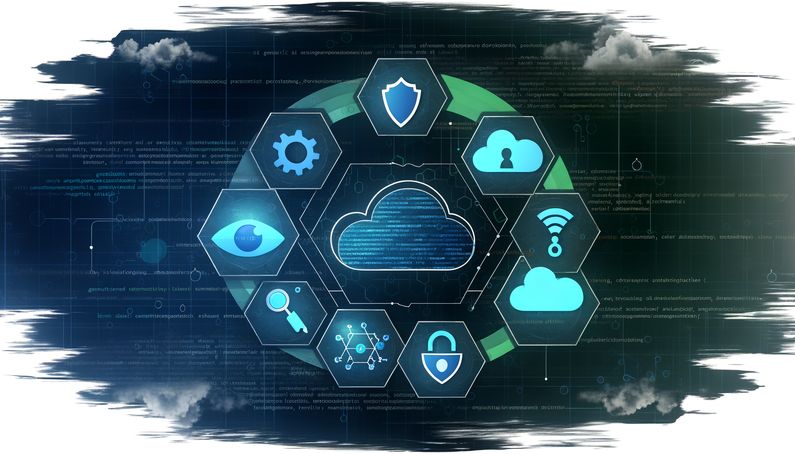
Enhancing DevSecOps with Wazuh: A Comprehensive Guide
In today’s fast-paced digital landscape, security breaches can have devastating consequences for organizations. Imagine a scenario where a minor vulnerability in your software leads to a major data breach, costing millions in damages and reputational harm. This is where DevSecOps comes into play, embedding security into every phase of the software development lifecycle to prevent such incidents.
DevSecOps is a methodology that ensures vulnerabilities are identified and addressed early. Wazuh, an open-source SIEM and XDR platform, is at the forefront of this movement, offering comprehensive security monitoring and threat detection capabilities. By providing continuous security monitoring across various environments, Wazuh ensures that security risks and policy violations are promptly identified and addressed. This platform not only centralizes security insights from infrastructure, applications, and containerized environments but also integrates with third-party solutions to enhance security posture and comply with industry regulations. The integration with tools like DefectDojo and Snyk further automates security scans, ensuring vulnerabilities are detected early in the development lifecycle (Wazuh Blog).
Integrating Security Throughout the Development Lifecycle
DevSecOps emphasizes the integration of security practices throughout the software development lifecycle. By embedding security measures early, organizations can detect and address vulnerabilities sooner, reducing the risk of exploitation. Wazuh, an open-source SIEM and XDR platform, plays a pivotal role in enhancing DevSecOps by offering robust security monitoring and threat detection capabilities.
Continuous Security Monitoring
Wazuh provides continuous security monitoring across various environments, including cloud, on-premises, and hybrid setups. This capability ensures that security risks and policy violations are promptly identified and addressed. By centralizing security insights from infrastructure, applications, and containerized environments, Wazuh enhances threat detection and response. It also offers built-in compliance reporting and integrates with third-party solutions to strengthen security posture and comply with industry regulations. (BleepingComputer)
Automating Security Scans
Automating security scans is a critical aspect of DevSecOps, ensuring that vulnerabilities are detected and addressed early in the development lifecycle. Wazuh integrates with tools like DefectDojo and Snyk to automate security scans across CI/CD environments. DefectDojo collects findings from multiple application security solutions, while Wazuh aggregates these findings for comprehensive analysis. The integration with Snyk allows for automated scanning of Docker images, detecting vulnerabilities early and forwarding findings to the Wazuh server for further analysis. (Wazuh Blog)
Enhancing CI/CD Security
CI/CD tools automate the integration, testing, and deployment of code changes, streamlining software development workflows. Wazuh enhances CI/CD security by providing out-of-the-box capabilities for monitoring CI/CD tools such as GitHub Actions and Docker. This monitoring includes detecting unauthorized access, changes in repository permissions, and user additions or removals. By integrating Wazuh with third-party application development security solutions, organizations can expand their security capabilities and ensure comprehensive monitoring of their CI/CD environments. (BleepingComputer)
Vulnerability Detection and Threat Intelligence
Wazuh’s Vulnerability Detector module and Cyber Threat Intelligence (CTI) repository play a crucial role in detecting vulnerabilities across endpoints and applications. The CTI repository provides context on known attack patterns, indicators of compromise (IOCs), and exploit tactics. By leveraging Wazuh’s threat intelligence feeds, security teams can identify, assess, and respond to evolving risks before they can be exploited. This proactive approach to vulnerability detection is essential for maintaining a strong security posture. (BleepingComputer)
Compliance Management
Compliance with security and regulatory frameworks is a significant concern for organizations. Wazuh simplifies compliance management by monitoring systems for misconfigurations, policy violations, and security risks that could impact regulatory adherence. It provides built-in rules and audit capabilities for frameworks such as PCI DSS, HIPAA, GDPR, NIST, and TSC. By leveraging its log analysis, file integrity monitoring, and vulnerability detection capabilities, Wazuh helps organizations meet regulatory requirements and maintain compliance. (BleepingComputer)
Integration with ESET Solutions
The integration of Wazuh with ESET solutions enhances security capabilities for small and medium-sized businesses (SMBs) and enterprises. This integration allows for the seamless ingestion of ESET PROTECT, ESET Inspect, and ESET Cloud Office Security data into Wazuh’s platform. By combining ESET’s advanced cybersecurity solutions with Wazuh’s open-source platform, organizations can meet their security needs more effectively, regardless of their maturity levels. This collaboration highlights the flexibility and scalability of Wazuh in enhancing DevSecOps practices. (ESET Newsroom)
Centralized Security Event Management
Wazuh serves as a central platform for aggregating and analyzing security events from both applications and IT environments. By forwarding application security scan results from tools like DefectDojo to Wazuh, organizations can unify their security events for better management and response. This centralized approach improves visibility and control of security defects within a DevSecOps environment, enabling teams to prioritize risk management and strengthen their security posture. (Wazuh Blog)
Real-Time Security Insights
Real-time security insights are crucial for effective threat detection and response. Wazuh offers real-time monitoring and analysis of security events, providing organizations with the information they need to respond quickly to threats. By integrating with third-party solutions and leveraging threat intelligence feeds, Wazuh enhances its real-time monitoring capabilities, enabling security teams to detect and mitigate threats before they can cause significant harm. (BleepingComputer)
Strengthening Security Posture
Wazuh’s comprehensive security capabilities help organizations strengthen their security posture by providing continuous monitoring, threat detection, and compliance management. By integrating security practices throughout the development lifecycle, Wazuh ensures that vulnerabilities are identified and remediated early, reducing the risk of exploitation. This proactive approach to security is essential for maintaining a strong security posture in today’s rapidly evolving threat landscape. (BleepingComputer)
Conclusion
Wazuh’s open-source platform offers a flexible and scalable solution for enhancing DevSecOps practices. By integrating security throughout the development and operations lifecycle, Wazuh helps organizations detect and address vulnerabilities early, strengthen their security posture, and comply with industry regulations. As DevSecOps practices continue to evolve, Wazuh remains a valuable tool for organizations seeking to improve their security capabilities. The platform’s ability to integrate with third-party solutions and provide real-time security insights makes it an indispensable asset in the fight against cyber threats. (BleepingComputer)
References
- Enhancing your DevSecOps with Wazuh: The open-source XDR platform, 2024, BleepingComputer https://www.bleepingcomputer.com/news/security/enhancing-your-devsecops-with-wazuh-the-open-source-xdr-platform/
- Integrating Wazuh with DefectDojo for DevSecOps, 2024, Wazuh Blog https://wazuh.com/blog/integrating-wazuh-with-defectdojo-for-devsecops/
- ESET launches integration with Wazuh, 2024, ESET Newsroom https://www.eset.com/us/about/newsroom/company/eset-launches-integration-with-wazuh/)



